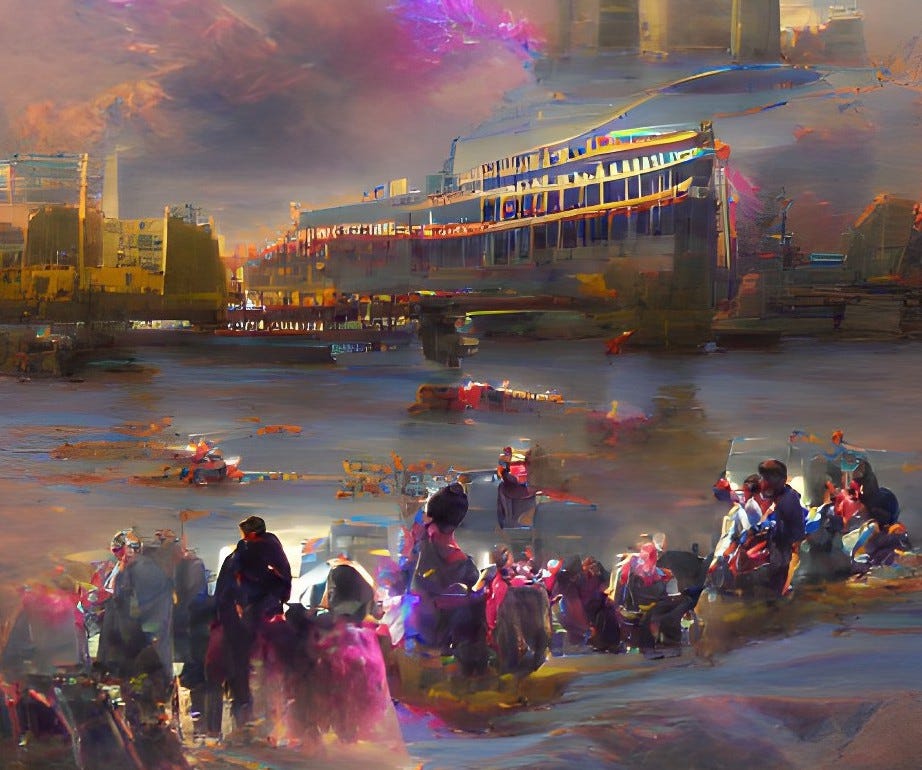At some point we knew we’d have to write about what’s been happening across London in the past couple of weeks, but the last thing we wanted to do was add to the pile of tepid takes and sickly guff.
So this issue is a bit of a weird one. It’s kind of about The Queue, but it’s also not about The Queue. It’s about what happens when the mood of a city is fed through the clickbait machine and how the pre-packaged, processed confection that comes out the other end scares us a little (even though, on the face of it, it’s mainly BBC news alerts about David Beckham eating crisps).
Anyway, you have been warned. See you on Saturday…

For a while now we’ve had a half-formed thought at the back of our minds about the two seemingly opposing forces that are steering London’s cultural landscape.
The first one is immersion. Immersion, immersion, immersion. The place where everything is interactive and you can’t just consume the entertainment, you have to EXPERIENCE IT, walk amongst it and influence the outcome.
The other trend is the one that’s happy to give away authorial power to some artificial intelligence. To sit back and marvel at what happens when human imagination becomes the ghost in the machine and we can just be swept along on the power of the algorithm.
These aren’t mutually exclusive forces. It’s easy to imagine an immersive experience scripted by AI, or even one in which you interact with that intelligence first hand. But these two trends do seem to speak to some opposing parts of our collective nature.
What does this have to do with the Queen dying?
Maybe we’ve been thinking about this stuff a bit too much, but over the past couple of weeks it’s been hard not to look at London through the lens of those two conflicting instincts. Because what has London been this past fortnight if not some vast theatre or giant art installation?
Alongside the ‘official show’ of regimented ceremony and pomp there’s been that constant background expectation that the audience might start to get involved in the performance somehow.
It happened when Diana died. From the calls for the Queen to return to London and for the flag above the palace to fly at half mast, to the very public conversations that were sparked around the Royal family’s place in society, the hypocrisy of the press and the levels of public mourning.
At the time, much of this was categorised as an ‘outpouring of emotion’ from a public ‘united in grief’; but there was something strangely subversive about the way the national mood unsettled politicians, caught the press on the back foot and created a hairline crack in British culture.
It didn’t last though. We might have seen some quiet echoes of that monarchical vibe shift after the Queen’s death, but ultimately (to quote this Mass Observation study), the “existing hierarchies of knowledge were overwhelmingly strengthened” in the wake of Diana’s death.
And we know that for sure now because of The Fucking Queue (TFQ).
Keep reading with a 7-day free trial
Subscribe to London in Bits to keep reading this post and get 7 days of free access to the full post archives.



